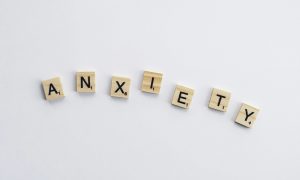
What Is Stress?
Stress is a physiological and psychological response to challenging situations, commonly referred to as stressors, which can be real or perceived threats to one’s well-being. The body’s stress response, known as the “fight or flight” mechanism, involves the release of stress hormones such as cortisol and adrenaline. While this response is designed to mobilize energy and resources to cope with immediate challenges, chronic or excessive stress can have detrimental effects on physical and mental health.
Physically, stress can manifest in symptoms like increased heart rate, muscle tension, and elevated blood pressure. Psychologically, it may lead to feelings of anxiety, irritability, and difficulty concentrating. Chronic stress has been linked to a range of health issues, including cardiovascular diseases, weakened immune function, and mental health disorders.
Individual responses to stress vary, and what may be perceived as stressful differs from person to person. Effective stress management involves recognizing stressors, developing coping strategies, and maintaining a healthy lifestyle that includes regular exercise, adequate sleep, and relaxation techniques. Seeking support from friends, family, or mental health professionals can also be crucial in mitigating the impact of stress on overall well-being.
Brief History of Stress
The concept of stress has evolved over time, reflecting changing perspectives in science, medicine, and psychology. The term “stress” was first introduced in the field of physics in the 17th century to describe the force exerted on materials. However, its application to human experiences emerged much later.
In the early 20th century, Hungarian endocrinologist Hans Selye played a pivotal role in shaping the modern understanding of stress. Selye proposed the General Adaptation Syndrome (GAS), a model illustrating the body’s response to stressors, encompassing the alarm, resistance, and exhaustion stages. Selye’s work laid the foundation for stress research and highlighted the physiological impact of chronic stress on health.
Throughout the 20th century, researchers like Walter Cannon and Hans Selye contributed to the understanding of stress as a physiological and psychological response. The term gained prominence in the 1950s and 1960s, becoming a central theme in psychology and medicine.
In the latter half of the 20th century, the concept of stress expanded to include both acute and chronic stressors, incorporating psychological factors and their impact on mental health. Today, stress is recognized as a complex interplay between biological, psychological, and social factors, influencing overall well-being. The ongoing exploration of stress continues to shape our understanding of its intricate mechanisms and the development of effective coping strategies.
| Period | Key Developments in the Understanding of Stress |
|---|---|
| 17th Century | Introduction of the term “stress” in physics to describe force on materials. |
| Early 20th Century | Hans Selye introduces the General Adaptation Syndrome (GAS) model. |
| 1950s-1960s | Stress gains prominence in psychology and medicine. |
| Late 20th Century | Recognition of stress as a physiological and psychological response. |
| Ongoing Exploration | Ongoing research explores the complex interplay of biological, psychological, and social factors influencing stress and well-being. |
What Causes Stress?
Stress can be caused by a variety of factors, and what triggers stress can vary from person to person. Common stressors include:
- Life Events:
- Significant life changes, such as marriage, divorce, job loss, or the death of a loved one, can be major stressors.
- Workplace Stress:
- High demands, tight deadlines, job insecurity, and conflicts at the workplace contribute to work-related stress.
- Financial Pressures:
- Money concerns, debt, and financial instability can lead to chronic stress.
- Relationship Issues:
- Conflicts, disagreements, and strained relationships with family, friends, or romantic partners can be sources of stress.
- Health Concerns:
- Chronic illnesses, sudden health issues, or the health problems of a loved one can induce stress.
- Daily Hassles:
- Everyday challenges, such as traffic, time pressures, and minor inconveniences, can accumulate and contribute to stress.
- Environmental Factors:
- Exposure to environmental stressors like noise, pollution, or crowded spaces can impact stress levels.
- Uncertainty and Change:
- Uncertain or unpredictable situations, as well as major life changes, can be stressful as they challenge one’s sense of control and stability.
- Perfectionism:
- High self-expectations and the constant pursuit of perfection can contribute to stress.
- Trauma:
- Past traumatic experiences, such as abuse or accidents, can have lasting effects and contribute to stress reactions.
It’s important to note that stress is a subjective experience, and individuals respond differently to stressors. Additionally, ongoing or chronic stress without effective coping mechanisms can have negative effects on both physical and mental health. Developing stress management techniques, seeking support, and maintaining a healthy lifestyle can help mitigate the impact of stressors.
What Are the Symptoms of Stress?
Stress can manifest in various physical, emotional, and behavioral symptoms. The symptoms of stress can vary among individuals, and the intensity may depend on the person’s coping mechanisms and the duration of stress. Common symptoms include:
- Physical Symptoms
- Headaches
- Muscle tension or pain
- Fatigue
- Sleep disturbances (insomnia or oversleeping)
- Gastrointestinal issues (upset stomach, nausea)
- Emotional Symptoms:
- Anxiety or constant worry
- Irritability or mood swings
- Feeling overwhelmed
- Sadness or depression
- Decreased concentration and memory
- Behavioral Symptoms:
- Changes in eating habits (overeating or undereating)
- Increased use of substances (alcohol, tobacco, or drugs)
- Social withdrawal or isolation
- Procrastination or neglect of responsibilities
- Restlessness or fidgeting
- Cognitive Symptoms:
- Racing thoughts
- Difficulty making decisions
- Forgetfulness
- Negative self-talk
- Interpersonal Symptoms:
- Increased conflicts in relationships
- Difficulty communicating
- Isolation from social activities
- Reduced interest in personal relationships
- Affect on Overall Well-being:
- Weakened immune system, leading to more frequent illnesses
- Increased risk of cardiovascular problems
- Impaired reproductive health
It’s important to recognize these symptoms as potential signs of stress and take steps to address them. Chronic or overwhelming stress can contribute to the development of more severe mental health issues. Seeking support from friends, family, or mental health professionals and adopting stress management strategies are crucial for maintaining overall well-being.
How Is Stress Diagnosed?
Unlike many medical conditions, stress is not diagnosed through laboratory tests or imaging. Instead, stress is typically diagnosed through a combination of self-reporting, clinical assessments, and discussions with healthcare professionals. The process may involve the following steps:
- Self-Reporting and Assessment:
- Individuals often self-report stress symptoms, sharing their experiences with healthcare providers. Healthcare professionals may use standardized questionnaires or assessments to gather information about the frequency and severity of stress symptoms.
- Clinical Evaluation:
- Healthcare professionals conduct a thorough clinical evaluation, taking into account the individual’s medical history, lifestyle, and any potential contributing factors. They may explore recent life events, work-related issues, relationships, and overall well-being.
- Physical Examination:
- While stress doesn’t have specific physical markers, a physical examination may be performed to rule out other potential causes for symptoms. This may include checking for physical conditions that can contribute to stress symptoms, such as thyroid disorders or hormonal imbalances.
- Psychological Evaluation:
- Mental health professionals, such as psychologists or psychiatrists, may conduct a psychological evaluation to assess the impact of stress on mental well-being. This may involve discussions about emotions, coping mechanisms, and any underlying mental health conditions.
- Rule Out Other Conditions:
- Since stress symptoms can overlap with those of other mental health disorders, healthcare providers may work to rule out conditions such as anxiety disorders, depression, or other psychiatric illnesses.
- Diagnostic Criteria:
- While there isn’t a specific medical diagnosis for “stress” in the way there is for certain medical conditions, healthcare professionals may use diagnostic criteria outlined in the Diagnostic and Statistical Manual of Mental Disorders (DSM-5) for conditions related to stress, such as adjustment disorders.
Diagnosing stress is a collaborative process that involves open communication between the individual and healthcare professionals. If stress symptoms are significantly impacting an individual’s life, treatment options, including stress management techniques, therapy, and, in some cases, medication, may be explored to improve overall well-being.
What Are the Different Types of Stress?
Stress can be categorized into different types based on its duration, intensity, and sources. The main types of stress include:
- Acute Stress:
- Brief and immediate response to a specific stressor. It is often considered normal and can be motivating. Examples include a job interview or a sudden deadline.
- Chronic Stress:
- Ongoing and persistent stress that lasts for an extended period. It can result from long-term challenges such as financial difficulties, relationship issues, or chronic health problems.
- Eustress:
- Positive or beneficial stress that can be motivating and enhance performance. It is typically short-term and perceived as a challenge rather than a threat. Examples include starting a new job or planning a wedding.
- Distress:
- Negative or harmful stress that can result in physical and mental health problems. Distress is often chronic and overwhelming, arising from factors like trauma, ongoing conflicts, or major life changes.
- Psychosocial Stress:
- Stress arising from social and psychological factors, such as relationships, work, family, or societal pressures. It encompasses various aspects of daily life that contribute to stress.
- Environmental Stress:
- Stress triggered by external factors in the environment, such as noise, pollution, or overcrowding. These stressors can impact well-being and contribute to a sense of unease.
- Work-Related Stress:
- Stress associated with the demands of the workplace, including tight deadlines, high workloads, conflicts, or job insecurity. It is a common type of stress that can affect both physical and mental health.
- Catastrophic Stress:
- An extreme form of stress resulting from major traumatic events, such as natural disasters, accidents, or life-threatening situations. It can have long-lasting effects on mental health.
- Secondary Traumatic Stress:
- Stress experienced by individuals indirectly exposed to trauma, often associated with professions like healthcare, emergency response, or caregiving where exposure to others’ trauma is frequent.
- Adolescent Stress:
- Stress specific to the challenges faced by adolescents, including academic pressures, social expectations, and identity development. Adolescents may experience stress related to peer relationships, academic performance, and future goals.
Understanding the different types of stress helps individuals and healthcare professionals tailor interventions and coping strategies to address specific stressors and improve overall well-being.
How is Stress Treated?
The treatment of stress involves a multifaceted approach that addresses both the underlying causes of stress and the management of symptoms. Here are common strategies for treating stress:
- Identify and Address Stressors:
- Identify the specific sources of stress and explore ways to address or cope with them. This may involve problem-solving, setting realistic goals, or making lifestyle changes.
- Counseling and Psychotherapy:
- Engage in counseling or psychotherapy to explore the psychological aspects of stress, develop coping strategies, and gain insights into managing stressors effectively. Cognitive-behavioral therapy (CBT) is often used to help individuals change negative thought patterns and behaviors.
- Stress Management Techniques:
- Learn and practice stress management techniques, such as deep breathing exercises, progressive muscle relaxation, mindfulness, and meditation. These techniques can help calm the nervous system and promote relaxation.
- Regular Exercise:
- Incorporate regular physical activity into your routine. Exercise has been shown to reduce stress hormones and trigger the release of endorphins, which are natural mood enhancers.
- Healthy Lifestyle Habits:
- Adopt a healthy lifestyle, including a balanced diet, adequate sleep, and regular sleep patterns. Proper nutrition and sufficient rest contribute to overall well-being and resilience to stress.
- Time Management:
- Improve time management skills to prioritize tasks, set realistic goals, and avoid feeling overwhelmed. Effective time management can reduce the impact of daily stressors.
- Social Support:
- Seek support from friends, family, or support groups. Sharing feelings and experiences with others can provide emotional support and practical advice.
- Limit Stimulants:
- Limit the intake of stimulants such as caffeine and nicotine, as they can contribute to increased feelings of anxiety and stress.
- Mindfulness-Based Stress Reduction (MBSR):
- Participate in mindfulness-based programs, such as MBSR, which combines mindfulness meditation and yoga to promote awareness and reduce stress.
- Medication:
- In some cases, medication may be prescribed to manage symptoms of anxiety or depression associated with chronic stress. This is typically considered when other interventions have not provided sufficient relief.
It’s essential to tailor the approach to individual needs and preferences. Consulting with healthcare professionals, including therapists, counselors, or primary care physicians, can help individuals develop a personalized and effective plan for managing stress. If stress is significantly impacting mental health, seeking professional guidance is crucial for comprehensive treatment.
Can Stress be Prevented?
While it may not be possible to entirely prevent stress, proactive measures can be taken to minimize its impact and reduce the likelihood of chronic stress. Here are strategies for stress prevention:
- Develop Healthy Coping Mechanisms:
- Cultivate effective coping mechanisms to manage daily stressors. This may include relaxation techniques, mindfulness, or engaging in activities that bring joy and relaxation.
- Build Resilience:
- Strengthen resilience by developing a positive mindset, adaptability, and the ability to bounce back from challenges. Building resilience helps individuals better navigate stressful situations.
- Maintain a Healthy Lifestyle:
- Adopt a balanced diet, engage in regular physical activity, and prioritize sufficient sleep. A healthy lifestyle contributes to overall well-being and better equips the body to handle stress.
- Time Management:
- Develop effective time management skills to prioritize tasks and set realistic goals. Proactively managing time can reduce the impact of daily stressors.
- Establish Boundaries:
- Set clear boundaries between work, personal life, and other responsibilities. Establishing boundaries helps prevent feeling overwhelmed and contributes to a better work-life balance.
- Social Support:
- Cultivate a strong support network of friends, family, or peers. Social connections provide emotional support and outlets for expressing feelings.
- Practice Mindfulness:
- Incorporate mindfulness practices into daily life. Mindfulness techniques, such as meditation and deep breathing, can promote relaxation and reduce stress.
- Learn to Say No:
- Recognize personal limits and be willing to say no to additional commitments when necessary. Overcommitting can contribute to stress and burnout.
- Regular Health Check-ups:
- Attend regular health check-ups to address any potential health issues early. Physical health is interconnected with mental well-being.
- Workplace Policies:
- Advocate for and support workplace policies that promote a healthy work environment, reasonable workloads, and stress management resources.
- Education and Awareness:
- Educate oneself about stress, its causes, and effective coping strategies. Awareness and knowledge empower individuals to take proactive steps in stress prevention.
While it may not be possible to eliminate stress entirely, incorporating these preventive measures into one’s lifestyle can help manage stress more effectively and reduce its negative impact on overall well-being. If stress becomes overwhelming or persistent, seeking professional guidance can provide additional support and coping strategies.
Is Stress Life-Threatening?
While stress itself is not inherently life-threatening, chronic and unmanaged stress can contribute to serious health issues and potentially impact one’s overall well-being. Prolonged exposure to high levels of stress has been associated with various physical and mental health problems, increasing the risk of certain conditions, including:
- Cardiovascular Issues:
- Chronic stress may contribute to high blood pressure, heart disease, and an increased risk of heart attacks or strokes.
- Weakened Immune System:
- Long-term stress can suppress the immune system, making individuals more susceptible to infections and illnesses.
- Gastrointestinal Problems:
- Stress has been linked to digestive issues, including irritable bowel syndrome (IBS), indigestion, and other gastrointestinal disorders.
- Mental Health Disorders:
- Chronic stress is a risk factor for the development or exacerbation of mental health conditions such as anxiety disorders and depression.
- Sleep Disturbances:
- Stress can contribute to sleep disturbances, including insomnia or poor-quality sleep, which in turn can impact overall health.
- Weight Gain or Loss:
- Stress may influence eating habits, leading to weight gain or loss. Changes in weight can contribute to other health issues.
- Reproductive Health Issues:
- Stress can affect reproductive health, potentially contributing to fertility problems and menstrual irregularities.
- Increased Substance Use:
- Some individuals may turn to substances like alcohol or drugs as a way to cope with stress, which can lead to addiction and related health issues.
- Cognitive Impairment:
- Chronic stress has been associated with cognitive impairment and an increased risk of age-related cognitive decline.
While stress can contribute to these health issues, it’s crucial to recognize that individuals respond differently to stress, and not everyone will experience the same outcomes. Additionally, many factors, including genetics, overall health, and lifestyle choices, can influence how stress affects an individual.
Managing stress through healthy coping mechanisms, lifestyle adjustments, and seeking support when needed can significantly mitigate its impact on health. If stress becomes overwhelming or persistent, it’s important to consult with healthcare professionals who can provide guidance and support for effective stress management.
Websites and Articles to Delve into the Aspects of Stress
Certainly! Here’s a brief overview of the information available on the provided websites about stress:
- Mind.org.uk:
- Mind.org.uk provides information on stress, defining it as a reaction to situations where there is pressure or threat. It emphasizes the importance of recognizing and managing stress.
- Cleveland Clinic – Stress:
- The Cleveland Clinic’s article covers various aspects of stress, including its definition, causes, symptoms, and management strategies. It offers practical advice for coping with stress.
- World Health Organization (WHO):
- WHO answers questions about stress, explaining its impact on health and well-being. It emphasizes the need for a balanced approach to manage stress for better health outcomes.
- MedlinePlus:
- MedlinePlus provides a medical perspective on stress, detailing its effects on the body and offering information on stress management.
- Medical News Today:
- Medical News Today’s article covers the definition of stress, its causes, symptoms, and treatment options. It includes insights into stress management and its impact on overall health.
- Mental Health Foundation:
- The Mental Health Foundation explores stress as a common experience, providing insights into its causes and suggesting ways to manage and reduce stress.
- WebMD – Stress Symptoms:
- WebMD outlines stress symptoms and their effects on the body. It offers practical advice on stress management techniques.
- HelpGuide.org:
- HelpGuide.org covers stress symptoms, signs, and causes, offering information on recognizing and effectively managing stress.
- Wikipedia – Stress (Biology):
- Wikipedia’s entry on stress in biology provides an overview of the physiological aspects of stress and its impact on organisms.
- Verywell Mind:
- Verywell Mind explores the connection between stress and health, addressing the psychological and physiological aspects of stress and its impact on well-being.
- Wikipedia – Psychological Stress:
- Wikipedia’s article on psychological stress delves into the mental and emotional aspects of stress, covering various stressors and their effects.
- Better Health Victoria:
- Better Health Victoria offers information on stress, its causes, and practical tips for managing stress for a healthier lifestyle.
- Psychology Today – Stress:
- Psychology Today provides an overview of stress, covering its definition, types, and tips for coping with stress in everyday life.
Please note that the content on these websites may be subject to change, and it’s always advisable to consult multiple sources for a comprehensive understanding of the topic.
Summary
Stress is a complex physiological and psychological response to challenging situations or perceived threats, encompassing a range of physical, emotional, and behavioral symptoms. Acute stress is a normal and temporary reaction, while chronic stress, resulting from prolonged exposure to stressors, can adversely affect health.
Common symptoms include headaches, muscle tension, anxiety, and changes in behavior. Chronic stress has been linked to cardiovascular problems, weakened immune function, and mental health disorders. Prevention involves healthy coping mechanisms, resilience-building, and maintaining a balanced lifestyle.
Timely intervention through counseling, stress management techniques, and, in some cases, medication, can mitigate the impact of stress on overall well-being. Recognizing individual responses to stress and seeking professional support when needed are essential for effective stress management.






